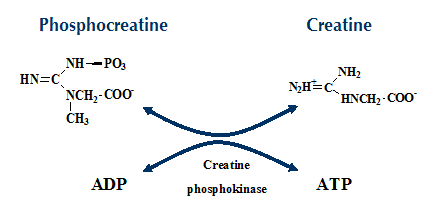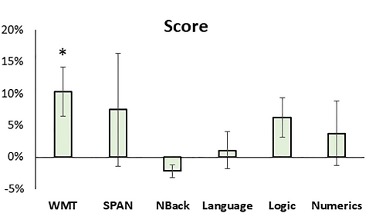Creatine for Sleep Deprivation: New Study Shows Single-Dose Benefits
Creatine supplementation mitigates the cognitive deficits induced by sleep deprivation in human subjects.
Highlights
- Creatine counteracts memory loss and processing speed in people who have been sleep deprived.
- Creatine also counteracts some of the negative metabolic alterations associated with sleep deprivation.
We’ve all been there: a late night, an early start, and the ability to think and remember dwindles. Sleep deprivation is a common challenge in our modern world, triggering impaired cognitive function that, if chronic, can lead to the development of age-related neurodegenerative disorders like Alzheimer’s disease. While many reach for coffee or energy drinks, a recent study published in Nature Scientific Reports suggests a surprising alternative: creatine.
The Brain on Empty
Sleep is vital for health and longevity, as getting less than 7 hours of sleep is associated with a 14% increase in mortality risk. When we’re sleep-deprived, crucial restorative processes are disrupted, leading to a cascade of negative effects on cognitive function. At a cellular level, sleep deprivation can impact the brain’s energy metabolism, particularly affecting high-energy phosphate compounds like ATP (adenosine triphosphate) and PCr (phosphocreatine), which are essential for neuronal function.

Creatine helps to regenerate ATP, the primary energy currency of the cell, by donating a phosphate group to ADP (adenosine diphosphate). While creatine is known for its muscle strength and hypertrophy benefits, higher doses show promise in improving brain function. Previous studies have shown that long-term creatine supplementation can improve cognitive performance, particularly in older adults, but the effects of a single, high dose are currently being elucidated.
Single Dose, Big Impact
To investigate the acute effects of creatine, researchers conducted a clinical study involving 15 healthy participants. A single high dose of creatine monohydrate (0.35 g/kg body weight) was given to the participants before a night of lab-controlled sleep deprivation. For comparison, on another night of sleep deprivation, the participants received a placebo.
At around 6 pm, before the administration of the creatine or placebo, cognitive performance was measured to obtain baseline measurements. The participants then took the creatine or placebo supplement at about 8:30 pm, and the cognitive performance measures were taken three more times, at approximately 12 am, 2 am, and 4 am.
Creatine Counteracts Sleep Deprivation-Induced Cognitive Deficits
Compared to the placebo, creatine supplementation was shown to improve scores on the word memory test (WMT). The word memory test involves 22 pairs of nouns, such as climate-storm, which were presented for five seconds. Then, upon presentation of the first word, the second word had to be recalled. Thus, creatine supplementation mitigated sleep deprivation-induced memory loss of words.

Furthermore, compared to the placebo group, the creatine group answered IQ-test training questions faster. These questions were within the realms of language, logic, and numerics. However, creatine did not improve on reaction time, as measured by the psychomotor vigilance test (PVT); memory loss of numbers, as measured by the forward memory digit span test (SPAN); or spatial memory loss, as measured by the aspatial N-Back test (NBack).

Creatine Counteracts Sleep Deprivation-Induced Metabolite Alterations
In addition to the cognitive performance tests, the researchers took advantage of an advanced brain imaging technique called MRS (magnetic resonance spectroscopy). MRS was used to measure changes in brain energy metabolites associated with the regeneration of ATP by creatine. It was implemented by employing an MRI (magnetic resonance imaging) machine, which uses a strong magnetic field to assess molecules in the body.
The brain imaging data revealed that creatine induced favorable changes in brain energy metabolism. Specifically, it led to changes in the ratios of PCr/Pi (phosphocreatine to inorganic phosphate) and ATP, suggesting an improved energy state within the brain. The study also observed that creatine helped to prevent a drop in pH levels in the brain, indicating a more stable cellular environment.
Together, these findings suggest that creatine can partially reverse the metabolic alterations and cognitive decline associated with sleep deprivation.
The Perfect Longevity and Sleep Optimization Stack?
While we may notice the acute effects of sleep deprivation, the long-term effects may go unnoticed for decades. Biological aging is a slow process of organ and tissue degeneration that can be slowed or accelerated by various factors, including sleep. Sleep deprivation can not only accelerate the degeneration of the brain, but also of other organs and tissues, such as our muscles and immune system.
The study suggests that creatine can counteract sleep deprivation-induced brain aging, potentially playing a protective role against neurodegeneration and dementia. Whether it protects against the sleep deprivation-induced age acceleration of other organs and tissues remains an open question.
Biological aging encompasses common features that affect all cells, including mitochondrial dysfunction and oxidative stress, which are both related to depletion of ATP. Thus, counteracting these drivers of aging, which are exacerbated by sleep deprivation, could contribute to counteracting accelerated aging induced by sleep deprivation.
Along those lines, Enlivien was designed to target sleep deprivation-induced age acceleration. Therefore, combining a high dose of creatine (in the order of 20 g) with Enliven could make for the perfect longevity and sleep optimization stack for biohackers who are experiencing sleep deprivation. Of course, one should always consult a healthcare provider before changing their dietary intake routine.
Participants: Healthy young adults
Dosage: 0.35 g/kg of weight

